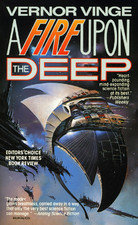I want to get it, guys, I really do. All the acclaim, all the rhapsodic reverence: I want to feel that, too. I just don’t, and tho I feel like I maybe came close here (and much closer than in the first book,) I still just don’t understand why this has been such a sensation, or even how universal its appeal could possibly be when, to me, it’s an above average but certainly not great novel.
My main problem with it was Lena. I’m the kind of reader who, especially if I’m reading a first-person narrative, trusts myself to the narrator in the expectation that even if I’m (hopefully pleasantly) betrayed, at least I will understand why the narrator makes her choices because I’m inside her head (see: Ian McEwan’s Atonement, Gillian Flynn’s Gone Girl, Agatha Christie’s Endless Night.) But Jesus Christ, Lena. The closest I can get to why she’s so fucking awful is that she’s a pessimist whose sense of self-worth is so minuscule that I’m fairly certain she has borderline personality disorder, to the point that nothing in her life, none of her own achievements or accomplishments, matter as much as or in contrast with her “best friend” Lila’s. When people talk about how “realistic” this depiction of a “complicated” friendship is, I thank God that my many female friendships through the years were not with a creature as absurdly self-abnegating and negative as Lena.
The main reason I enjoyed this novel and will continue to keep reading the series is, by contrast, Lila. I might not agree with all her decisions (tho in so many I felt a kinship) and I might think her occasionally mean and awful, but man, I really want things to go well for her. I read a memoir a while back where the author, in an effort to make her husband look like a good guy, painted herself as the villain in a weird act of self-justification as to why she put up with things instead of maybe saying something and not being passive-aggressive for a change, and this book felt a lot like that: a love letter to Lila, who is awesome despite Lena, who maybe makes herself sound shittier than she needs to because she wants us to love Lila like she does. But then again, Lena went and tossed the box into the river in an act of wild selfishness and ill-discipline (not to mention ill will,) so fuck her.

